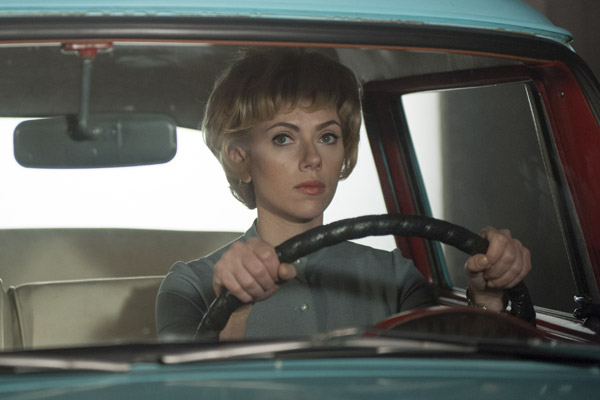Hitchcock is one of those films which would have been much better off if it had taken a moment to sit down and decide on its own sensibility. Before a camera had even rolled, it should have pulled up a chair and asked itself: am I a film about Hitchcock’s marriage, or am I a film about his psyche, or am I a film about one of his films, or am I an inside-Hollywood comedy, starring Sir Anthony Hopkins lumbering about in a fat suit and perving at blondes? If it had asked itself, it might have settled on the one, and retained its focus, and told us something. But it didn’t, so it doesn’t, and it tells us nothing. It’s not awful. It’s just not much of anything; the kind of film you will walk away from with a ‘so what?’ and a shrug. ‘So what?’ I shrugged, as I walked away. See? Aren’t I always right? (Except when I’m wrong, but otherwise, aren’t I always right?)
Directed by Sacha Gervasi (who made the wonderful documentary Anvil, and seems odd casting for this, but there you have it) and partly based on the journalist Stephen Rebello’s book, this takes up Hitch’s life just as he’s finished North by Northwest and is about to embark on Psycho. Hopkins, as Hitchcock, is certainly the full prosthetic deal, with lugubrious chins, a jutting lower lip, and a belly so portly his trousers are almost a prototype onesie, they have to come up so high. Yet his performance is immense rather than immersive. Even though he goes all-out, it always feels like Sir Anthony under latex, going all out. How shall I put this…he’s not exactly one of those actors who can disappear into a role, is he?
Meanwhile, Hitchcock’s wife of nearly 50 years, Alma, is played by Helen Mirren. She is a great actress, crisp and glamorous, but as I couldn’t properly buy him, I just couldn’t properly buy her. Anyway, most of the time I was hoping they’d get out of the way so I could admire all the mid-century furniture and clothing, which are all totally fab. ‘Shove off, you two, so I can better see that sideboard!’ is what was most going through my mind. And it has to be a sign of a film in trouble, I think, when you are more interested in the set than anything else. (I believe the sideboard was Eames. If only the two had got out of the way, I’d know for sure.)
According to this film, Alma contributed significantly to Hitchcock’s career, giving him ideas, revising scripts, even directing in his absence although he, it seems, needs to be reminded of her value, which she achieves by nearly having an affair with a sycophantic screenwriter. I have no idea what is fact and what is speculation here, but I can spot the oversimplification of a marriage when I see it, as well as rubbish dialogue of the kind that spells it out to an audience. ‘I put up with these fantasy romances with your leading ladies,‘ Alma might say. ‘How would you really know what goes on between a man and a woman?’ Their relationship, which, for the most part, is actually rather jokey, comes under further pressure when Paramount refuses to finance Psycho, and Hitchcock puts up his own money, even remortgaging the Hollywood house and garden Alma so loves. But you know what? I didn’t care if they lost their beautiful house. I just didn’t care about them.
So, there’s the marriage business, and there’s the making of Psycho (pretty dull, actually) and there’s Hitch’s psyche. As the film would have it, he was haunted by the ghost of Ed Gein, the real-life killer on whom Psycho was based, and who shows up periodically to offer him advice. It’s all extraordinarily awkward and clumsy and absurd, and if it’s meant as a projection of Hitchcock’s own dark violence, it’s laughable. And as for his treatment of women, he keeps a stack of photographs of his leading ladies, and has a peephole to watch them undressing, yet seems a bit of a sweetie, one of those harmless pervs rather than a sadomasochist who could, and did, destroy women and their careers. Actually, given how fascinating Hitchcock was — he was terrified of eggs, you know? — what’s most extraordinary is just how dreary this makes him.
This is a film that tries to do a lot, achieves little, wastes many of its cast members — particularly Toni Collette as Hitch’s assistant Peggy, and Scarlett Johansson as Janet Leigh — and which you can walk away from with a shrug. It should have sat itself down and asked itself what it was about. All films should.






Comments